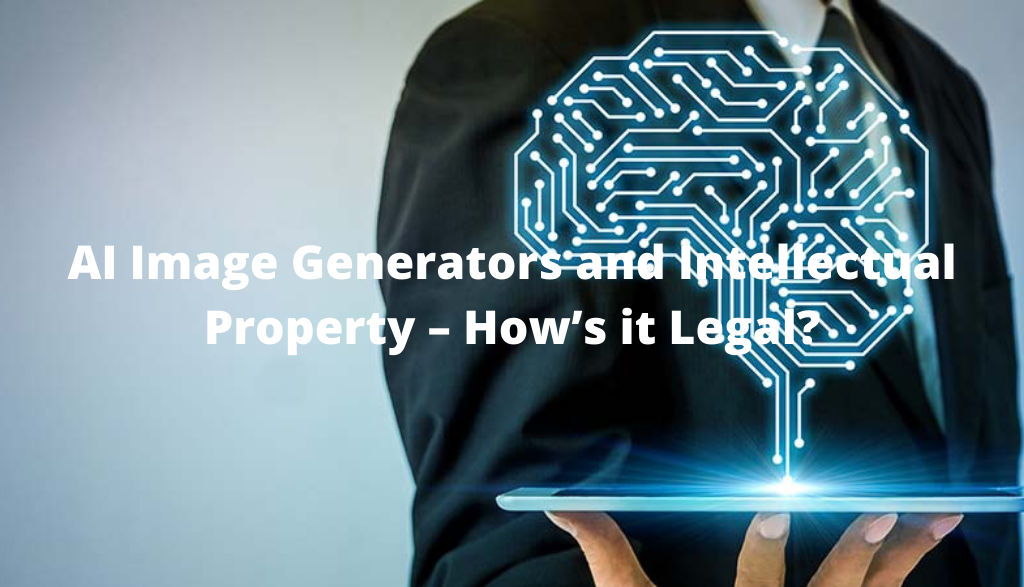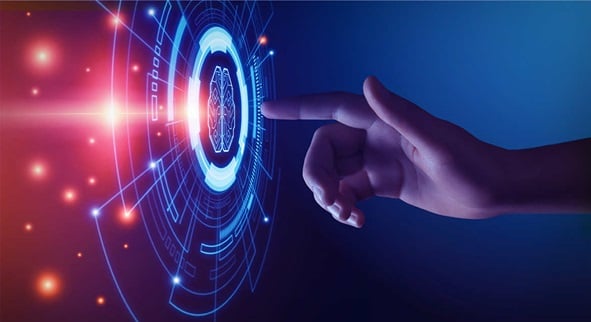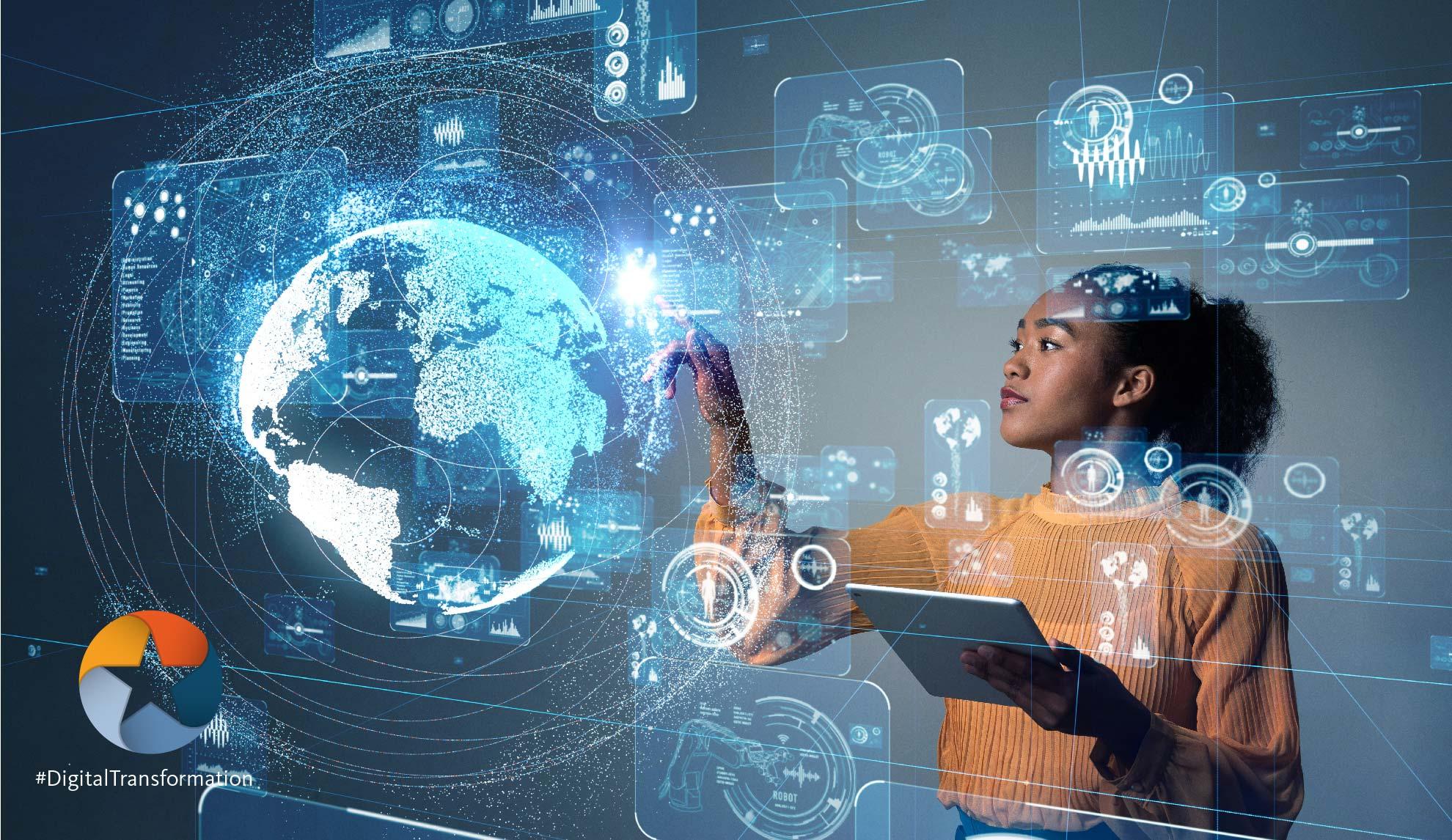AI Image Generators and Intellectual Property – How’s it Legal?
10 Jan 2023
19 Dec 2022
min read

AI Image Generators and Intellectual Property – How’s it Legal?
Artificial Intelligence (AI) Image Generators are picking up popularity rapidly. These Generative AI create an image from a text description. AI Image Generators are under the umbrella of frontier technologies, including Internet of things (IoT), blockchain, big data, and cloud computing physical technologies, such as autonomous driving and 3D printing, and biological technologies, such as genetic engineering, human augmentation, and the brain-computer-interface. How will this new technology interact with intellectual property (IP) law? With AI image generators, two fundamental IP issues arise: the potential of third-party IP infringement and the ownership of the AI-generated images.

Third-party IP infringement
The ability to generate images from a text description has the potential of causing trademark and copyright infringement. OpenAI, an AI research and deployment company, issued a statement, warning that the system can sometimes create works that include trademarked logos or characters and copyrighted material. So how are AI Image Generator companies ensuring that copyright and trademark protected images are not used by Generative AI without appropriate permissions or licensing?
A recent lawsuit against GitHub Copilot, a tool that automatically writes working code when a programmer starts typing, may change the future of Generative AI and copyright law. In this lawsuit, a coder alleged that GitHub, Microsoft, and OpenAI violate open-source licenses and could have a wide impact on the world of AI. GitHub is being sued on the grounds of copyright infringement because it does not provide attribution, the mention of the copyright owner, when open-source code is covered by a license requiring it. The plaintiff’s lawyer stated: “This is the first step in what will be a long journey. As far as we know, this is the first class-action case in the US challenging the training and output of AI systems. It will not be the last. AI systems are not exempt from the law. Those who create and operate these systems must remain accountable.”
The bottom line is that these Generative AI have the potential of causing IP infringement placing a burden on IP holders to monitor and enforce their IP rights. The technology calls for companies that produce and manage AI need to ensure appropriate standards and policies are established to protect against IP infringement by Generative AI.
Ownership and protection of the AI-generated Images
OpenAI the creators of DALL·E 2, an AI model that functions to generate images from text prompts have outlined in their policies and enforcement guide that the use of the DALL·E 2 at the moment is “for personal, non-commercial exploration and research purposes by people who are interested in understanding the potential uses of these capabilities.”
With new technologies, there are new possibilities for commercialization and potential for IP infringement. The primary IP concern for AI-generated images is, to whom do the rights of the image copyright belong? Can works of an AI be categorized as original works of authorship? Do users who insert text prompts in AI Image Generators have rights over the images?
To allocate any IP rights, the first step is identifying the party that owns the subject of IP. With AI-generated images, it’s unclear what party owns the images. The United States Copyright Office in a decision to refuse grant of copyright stated that human authorship is a prerequisite to copyright protection. A decade earlier, in 2018, PETA filed a lawsuit on behalf of a monkey, requesting proceeds from the image be used for the endangered species benefit. The court dismissed the case, stating that only humans, not animals, may register for copyright and launch copyright claims.
In the current context, AI-generated images are not made by humans and, therefore, IP rights cannot be assigned to these Generative AI. Should the images then be left to the public domain?
On July 28, 2021, the Intellectual Property Commission of South Africa granted the first ever patent to DABUS, an AI, as the inventor, and the machine’s owner as the patent owner. DABUS simulates human brainstorming and creates new inventions. The argument for the grant of the patent was that just like a human mind, the AI has a machine conception, an element of innovation, and, therefore, the machine should be capable of holding rights. The argument against the grant of the patent was that AI lacks legal personality and, therefore, rights such as licensing and transfer that can be granted to an IP rights holder cannot be exercised by an AI.

What’s Next?
Thus far, World Intellectual Property Organization has stated that granting copyright to the person who made the operation of artificial intelligence possible seems to be the most plausible approach. The verdict is out on many IP lawsuits in the United States. We await the decisions to make sense of to whom IP ownership rights belong, and whether Generative AI should be given the status and rights of people in the IP arena.
Keywords:
